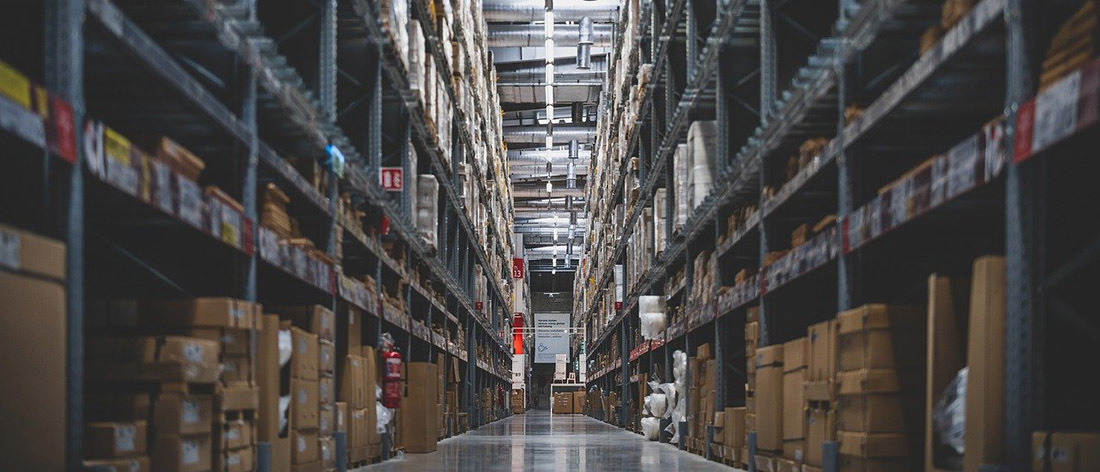Letters from Silicon Valley: Winter 2021
Letters from ...Technologies and trends from the land of the techies

Will we just continue working from home and ordering things online? And what will happen to office and retail units? These are just some of the questions in our winter 2020 letter.
Tim Ole Jöhnk, Director of the Northern Germany Innovation Office (NGIO), reports on topics that have been hotly debated by Silicon Valley over recent days and weeks.
Offices and the question of future work

For many, working from home has become the norm in recent months. Some companies in Silicon Valley have announced that they will partly or fully continue implementing working from home in the future, such as Twitter or Facebook, which expects 50 percent of its work to be carried out remotely by 2025. What will happen to the campuses and office blocks in which tens of thousands of people work?
The cloud services company Dropbox is taking an innovative approach. It is calling its new working model “Virtual First”. Working from home will become the norm for employees. Furthermore, there will be “Dropbox Studios” at the company's former sites. These locations will be dedicated to teamwork: there will be creative laboratories where employees can come together if they want to meet as a team, for example to carry out tasks. Furthermore, the company is breaking down its standard working day so that employees can work more flexibly. It is also developing tools that will make it easier to work together from a distance. Dropbox wants to do this to combine the advantages of working from home with the benefits of office structures, because working from home is repeatedly criticised precisely for the lack of opportunity to work creatively as a team.
An extensive roll-out of working from home provides many advantages to the Valley. Alongside having lower costs per employee for rent and office equipment, they can employ people from anywhere and are not limited to the San Francisco Bay area. The technology companies can also pay people less in places with lower living costs and some are going so far as to cut the salaries of employees who are moving away from the Valley due to the new working from home rules.
But not everyone sees the new world of working from home as completely positive: one of the concerns is an increased risk of burn-out due to overworking. Recently, the Metropolitan Transportation Commission in the Bay Area even suggested that three-day office weeks should be officially implemented to reduce traffic and achieve climate goals. Local politicians clearly opposed this, for example stating that small and medium-sized businesses would suffer in particular, because they often do not have the same options as large technology companies.
Steelcase, an office furniture manufacturer from Michigan, has another objection. Due to a plausible vested interest, the company collated many studies intending to show that purely working from home negatively impacts on productivity, while leading to decreased performance in the long term. However, the furniture manufacturer also does not think that things will go back to how they were after the pandemic is over. The company is conducting extensive research into the future of the workplace, also in collaboration with many universities around the world, including LMU Munich. What is emerging is similar to Dropbox’s approach: making work life more flexible. Employees will have the opportunity to freely decide between working from home and in the office, and there will be more flexible spaces in the workplace. These will make it easier to switch between individual work and creative team work and facilitate new room arrangements: in short, work will focus more on users.
User-centred design is the word of the hour. This means more collaboration across different company levels, for example by a company sharing space with another company and thus enabling the exchange of knowledge and experience between employees. Silicon Valley believes that this development has a bright future ahead and sees an opportunity to be able to offer a full range of appropriate digital services using its own platforms.
Darkstore and co.: how it will become easier to stand up to Amazon

When it comes to the effects of coronavirus, the meteoric rise in online business is undoubtedly the second biggest trend after working from home. In the same breath, there are reports of local retail dying out and increased vacant units in cities.
Amazon is enjoying a large share of the pie: online giants account for around 50 percent of American online retail sales. However, around half of these sales are not completed through Amazon itself, but through third parties that use Amazon as a sales platform, often including very small shops or specialised online shops. They benefit from the giant logistics infrastructure and, as well as logistics centres, from Amazon’s planes and chartered boats.
Yet, this service comes with a price tag: Amazon’s fees lower the profit margin. Furthermore, well-known brands have to combat imitation and counterfeit products that do not always disappear from the retail platform immediately. This often makes it more difficult for manufacturers to present their products as they wish. For this reason, several big brands, like shoe manufacturers Nike, Birkenstock and Vans, have removed their products from Amazon to establish their own shops.
One of the companies helping them is a start-up from Silicon Valley: Darkstore. According to the company, it offers warehouse-as-a-service. The start-up’s aim is to be able to offer delivery services like Amazon, even up to same-day delivery. It relies on urban logistics warehouses for this purpose. These are as close as possible to the customers and are already being set up in empty retail spaces. As opposed to classic contract logistics, clients do not pay for warehousing, but only pay for each sent item when the goods are shipped. The company is collaborating with other services in the supply chain. For example, it is working with Doordash for its deliveries, which recently became a listed company. The service is currently available in New York and Los Angeles, but is likely to expand further soon.
Together with other service providers in the online business segment, such as online shop configurator Shopify, payment service providers like PayPal or delivery services like Doordash, infrastructure is gradually emerging that will also allow medium-sized companies to keep their service promise to their customers like with Amazon, but without having to use the top dog’s logistics and branding. This allows them to stand up to Amazon and keep growing independently.
Success Stories
Letters from Türkiye: Summer 2025 edition
Türkiye is focusing on high-tech innovation in order to achieve long-term growth. Will it succeed? Our Türkiye expert Erol Tüfekҫi explains in our country report.
Learn moreLetters from Vietnam: Winter 2025 edition
What effects will the sweeping changes in the White House have on Vietnam's economy? Could the current administrative reforms have negative implications for foreign investors? These topics and more will be discussed in the latest Letter from Vietnam.
Learn more“After all, we're here because someone else made room for us, and it's our duty to do the same for others”
Theoretical physicist, industrial mathematician, manager – as a member of the start-up company TOPAS, Dr. Shruti Patel creates change in Bremen. However, being a role model has not always been easy for her.
Learn more
